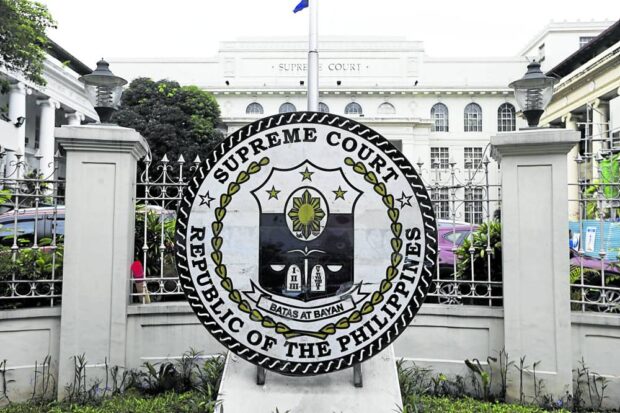SC mulls AI translators, podcasts about cases

INQUIRER PHOTO/NINO JESUS ORBETA
BAGUIO CITY, Philippines — Imagine adaptive algorithms translating courtroom exchanges from English to major Filipino dialects in real time for the benefit of litigants, or podcasts that explain the scope and impact of landmark decisions to average citizens.
These are just samples of the technological and educational innovations that may soon be embraced by the Supreme Court.
The high court is reviewing the advantages of artificial intelligence (AI) in making the judicial process more efficient, fair and accessible especially to the disadvantaged, the Inquirer learned during Thursday’s launch of the FAIR Justice program here, where the Supreme Court has been holding its summer sessions.
READ: AI: a double-edged sword
The Supreme Court is looking to tap AI and various apps already in use in many parts of the world to translate court interactions for the sake of undereducated litigants during trials, according to a ranking court official privy to the plans but who asked not be named for lack of authority to speak on the matter.
An AI app could also be used to translate major decisions into various dialects, which the public may access through the Supreme Court’s online portal, the official said.
READ: AI will be everywhere in 2024
‘Top-to-bottom reforms’
Also under study is the production of podcasts that properly synthesize and expound on landmark jurisprudence, its underlying issues and arguments, and ultimately its impact on society.
Harnessing technology to improve the efficiency of the Philippine judiciary was indeed the pervading topic during the April 11 launch of the Australian-funded FAIR Justice program.
It is one of the key features of the tribunal’s Strategic Plan for Judicial Innovations (SPJI), which was set into motion in 2022 and have steps lined up till 2027, according to Chief Justice Alexander Gesmundo.
The SPJI, Gesmundo said, serves as the “blueprint for top-to-bottom, system-wide operational and institutional reforms aimed at bringing about an efficient and effective judiciary that delivers justice in real time—justice that is not just fair, but responsive, fast and fully accessible to all.”
READ: ‘REAL Justice’: SC revives mobile courts for remote areas
“The product of exhaustive study, collaboration, deliberation, and discernment, the SPJI offers a comprehensive set of reforms [that were] formulated around four guiding principles: timely and fair justice, transparent and accountable justice, equal and inclusive justice, and technologically adaptive management,” the chief justice said.
Aid to stenographers
According to the SPJI manual, the Supreme Court is of the view that AI and its use for language and “problem solving and reasoning” require a thorough study, especially if it is to be applied to court operations.
Such a review will cover the possible risks posed by AI, even as other countries have been employing “AI-enabled research tools and AI-enabled voice-to-text transcription applications to support the work of court stenographers,” the manual noted.
The technology could make up for the shortage of court stenographers, it added.
Another proposal under the SPJI calls for setup of an e-library that can be programmed to track the history of a specific case, as well as its relationship with other cases, helping litigants who want a better grasp of their unfolding legal battles.
Guided by the SPJI, FAIR Justice is a five-year, P350-million program enabling vulnerable sectors to benefit from the judicial system, with a stress on gender equality and inclusivity, said Dr. Moya Collett, the acting Australian ambassador to the Philippines.
As a venue for collaboration with Australia, Gesmundo said, it is expected to help “accelerate work in improving the adjudication of cases related to terrorism and human trafficking, particularly the online exploitation of children; supporting our family courts; strengthening court accountability; and promoting gender sensitivity in courts.”